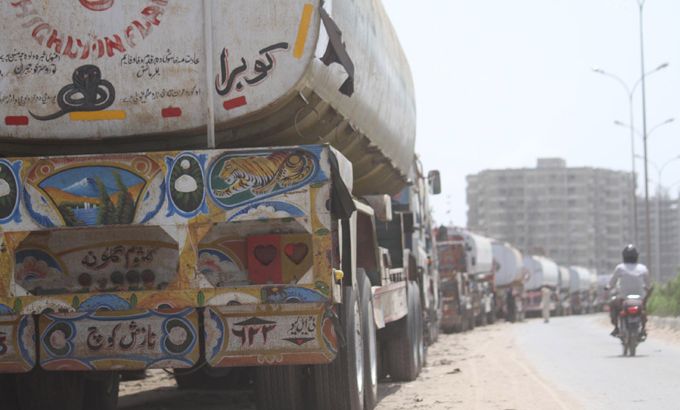
US-Pakistan relations: At a standstill
The extent of the rift over the closure of crossings to NATO supply convoys was on full display at the NATO summit.
The relationship between the US and Pakistan has been strained to breaking point and that breakdown was clearly on view at the NATO summit in Chicago.
|
“The Pakistanis are very annoyed with the Americans for what they say is not sharing the end-game: i.e. talks with the Taliban.“ – Ahmed Rashid, a Pakistani journalist |
Barack Obama, the US president, and his Pakistani counterpart Asif Ali Zardari barely spoke to each other.
Several issues are causing tensions between the former allies, but the most recent rift concerns the unsuccessful negotiations to reopen Pakistan’s border to NATO supply convoys.
The Pakistani government closed the crossings to NATO last November after airstrikes by the alliance killed 24 Pakistani soldiers at a border outpost.
Talks have been ongoing since April to resolve the issue, and both sides reported enough progress for NATO to invite Zardari to the Chicago gathering, but no agreement materialised in time for the summit.
Obama then refused to meet Zardari for a one-on-one meeting – and only managed a brief discussion with him as they walked into the summit.
At a press conference at the end of the summit, Obama made no attempt to conceal his frustration. He told reporters that while there was progress on the supply line issue, he did not want to “paper over” the real challenges in the relationship.
Among those challenges is money.
|
“If Pakistan is true to its word and its foreign minister is saying they want stability in Afghanistan, and they want to actually help with a reconciliation or a peace process that involves the Taliban – then they better put up or shut up.“ – Brian Katulis, a senior fellow at the Center for American Progress |
Pakistan says it is prepared to reopen the borders, but wants much higher transit fees from NATO – $5,000 per truck crossing its border instead of the $250 fee per vehicle charged before the November incident.
The contentious supply routes both start in Karachi, Pakistan’s main port. One route, which supplies northern Afghanistan, crosses the Khyber Pass and enters Afghanistan at Torkham, terminating at Kabul. The other route – supplying the south of Afghanistan – passes through Balochistan province, crossing the border at Chaman and ending in Kandahar.
But there is an alternative route that does not cross through Pakistan. Known as the northern route, this passes through Russia and the Caucuses, entering via Uzbekistan. It is, however, longer and more costly.
So what has gone wrong with the relationship between the US and Pakistan? And how can it be improved?
Inside Story Americas, with presenter Anand Naidoo, discusses with guests: Hassan Abbas, a former Pakistani government official who is now a senior adviser at the Asia Society and the author of several books on Pakistan; Ahmed Rashid, a Pakistani journalist and author of Pakistan on the Brink: The Future of America, Pakistan, and Afghanistan; and Brian Katulis, a senior fellow at the Center for American Progress and a specialist in US national security policy in the Middle East and South Asia.
|
“I would say the whole history of Pakistan and the US has been based on a financial relationship. Based on rent.” Hassan Abbas, a former Pakistani government official |